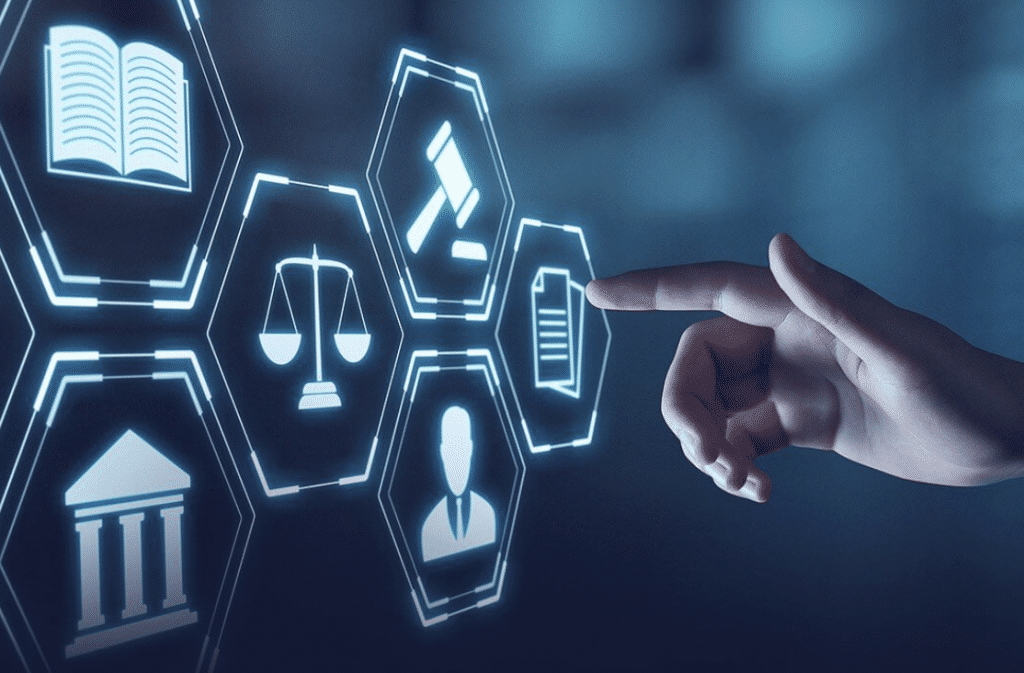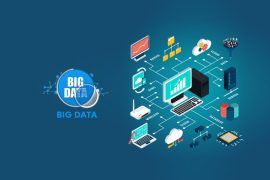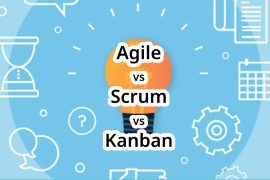Short for “Legal Technology”, LegalTech is the use of technology and software solutions to streamline, enhance, and automate legal processes and services. Usually, what we see in the legal industry is labor-intensive, paper-based practices. However, LegalTech is changing the way professionals work and how legal services get delivered.
Table of Contents
Important Aspects of LegalTech

LegalTech is rapidly evolving, and its adoption has been driven by the need for better access to legal services, improved efficiency, cost reduction, and the increasing volume and complexity of legal data. While LegalTech has many advantages, there are also some drawbacks related to ethics, data security, and regulatory compliance, as legal professionals must adhere to strict regulations and professional standards. Hence, integrating LegalTech requires a fine balance between innovation and compliance.
SaaS solutions play a key role in shaping LegalTech. These innovations enhance the efficiency, accessibility, and effectiveness of legal services, and have the power to revolutionize the way legal professionals work. Here are some important SaaS innovations shaping the legal industry.
- Document Automation and Management: SaaS platforms like Clio, DocuSign, and Adobe Sign have streamlined the creation, storage, editing, and signing of legal documents. These tools reduce the time and effort required for document management.
- E-Discovery: E-discovery platforms like Relativity and Everlaw have transformed the way legal professionals review and analyze litigation documents. These tools search, organize, and extract relevant information from large volumes of data using AI and machine learning.
- Contract Lifecycle Management (CLM): CLM solutions like Icertis and Concord help companies manage contracts from creation to expiration. They provide features for contract drafting, negotiation, approval, and analytics, reducing the risks that contract mismanagement causes.
- Legal Research: Westlaw and LexisNexis are among the SaaS solutions that provide legal professionals with access to vast databases of case law, statutes, and legal documents. Lawyers can quickly find relevant information for their cases.
- Practice Management: Practice management tools like MyCase and PracticePanther help law firms manage their day-to-day operations. Thus, overall efficiency and client satisfaction are ensured.
- Online Dispute Resolution (ODR): Modria and Resolver are platforms that make it easier for online dispute solving for businesses and individuals. ODR SaaS solutions offer automated negotiation and mediation services thus cutting out costly and cumbersome court proceedings.
- Regulatory Compliance: ComplyAdvantage and Quantifind are RegTech SaaS solutions that assist companies in staying compliant with ever-evolving legal and regulatory requirements. You are always compliant with rules and regulations, courtesy AI.
- AI-Powered Legal Analytics: Want to leverage artificial intelligence to provide insights into legal data? SaaS platforms like ROSS and Lex Machina are your best friend. Legal professionals can use these analytics to make data-driven decisions, predict litigation outcomes, and evaluate case strategies amongst other things.
- Virtual Law Firms: Atrium and UpCounsel, are SaaS providers that offer end-to-end virtual law firm solutions. Lawyers can practice entirely online.
- Legal Marketplaces: Marketplaces like Avvo and LegalZoom connect clients with legal professionals. Platforms like these can help consumers find legal assistance more easily and at a lower cost.
- Cybersecurity and Data Protection: SaaS tools like Exterro and Varonis help law firms and organizations manage and protect sensitive legal data. This is paramount in an age when data security is everything.
- Collaboration Tools: Using collaboration SaaS solutions like Microsoft Teams, Google Workspace or Slack, legal teams can work seamlessly whether they are located in the same place or spread across various locations.
Thus, access to legal services is getting easier, the efficiency of legal professionals is rising, as are cost savings for clients. As technology carries on its forward march, the LegalTech landscape may witness further transformations, making legal services more accessible and efficient than ever before. However, do note that the legal industry also faces unique challenges and regulatory constraints. You must be mindful of compliance and ethical considerations when adopting SaaS solutions.
SaaS has a bright future in LegalTech and is poised for significant growth and innovation. LegalTech is increasingly consolidating its place as an essential part of the legal industry, and legal professionals want to improve efficiency, overall client experience, and access to legal services. Here are some of the important aspects that are likely to shape the future of SaaS in LegalTech.
Advanced AI and Machine Learning: AI and machine learning will play an even more prominent role in LegalTech. These technologies will be used for tasks such as legal research, contract analysis, e-discovery, and predictive analytics. They can assist lawyers in providing more accurate and timely advice to clients. AI and machine learning will have an even more important role in LegalTech. Legal research, e-discovery, contract analysis, and predictive analysis are tasks that will use this service even more. What’s more, they can help lawyers in giving timely and accurate advice to clients.
Blockchain and Smart Contracts: Smart contracts will be created by blockchain technology, and self-executing agreements will automatically enforce contract terms. SaaS platforms shall be designed to manage and facilitate these smart contracts thereby bringing down the need for manual legal review and enforcement.
Data Privacy and Security: As data privacy and cybersecurity become even more important, LegalTech SaaS solutions will have to focus on increasing data protection and compliance capabilities. Law firms and organizations will use this to manage sensitive legal data securely.
Regulatory Compliance and Reporting: SaaS platforms shall carry on developing advanced regulatory technology (RegTech) features to help businesses stay compliant with changing legalities and regulations. Automated compliance reporting and monitoring shall be important.
Virtual Law Firms: Virtual law firms shall keep mushrooming up, enabled by SaaS solutions. Thus lawyers can work remotely, reducing overhead costs and expanding access to legal services.
Legal Marketplaces and Self-Service Solutions: Legal marketplaces and self-service legal solutions will increase, making legal services more accessible to a broader range of clients, like small enterprises and clients.
Client-Centric Tools: Client experience will be the most important aspect of LegalTech. Features like client portals, chatbots, and online consultation scheduling will become more popular, so clients can interact with lawyers more efficiently.
Collaboration and Communication Tools: With remote work becoming a norm, SaaS platforms for legal professionals will focus more on collaboration and communication tools, helping lawyers work effectively from multiple locations.
Natural Language Processing (NLP): NLP will be integrated into LegalTech SaaS platforms, making it easier to extract, analyse, and understand the meaning of legal documents and conversations, something which is indispensable for contract analysis and research.
Environmental, Social, and Governance (ESG) Compliance: SaaS solutions will cater to the increasing need for ESG compliance, so businesses may adhere to to sustainability and social responsibility standards.
Online Dispute Resolution (ODR): ODR platforms will continue to evolve and become more complex, providing alternative dispute resolution mechanisms that SaaS solutions may access.
Globalization and Cross-Border Services: LegalTech SaaS platforms will offer solutions to support cross-border legal services, including international contract management, dispute arbitration, and regulatory compliance.
Education and Training: As the legal workforce gets more complex, LegalTech SaaS solutions will offer training and educational modules so legal professionals can adapt to new technologies and tools.
Conclusion
Technology shall play a major role in the future of SaaS in LegalTech, so efficiency, accessibility, and the overall quality of legal services improve. However, the legal industry is quite regulated and the integration of these technologies needs to be done keeping in mind ethical and compliance considerations. SaaS providers will have to work together with legal professionals to make sure that the use of tech in the legal field adheres to the highest ethical and professional standards.






